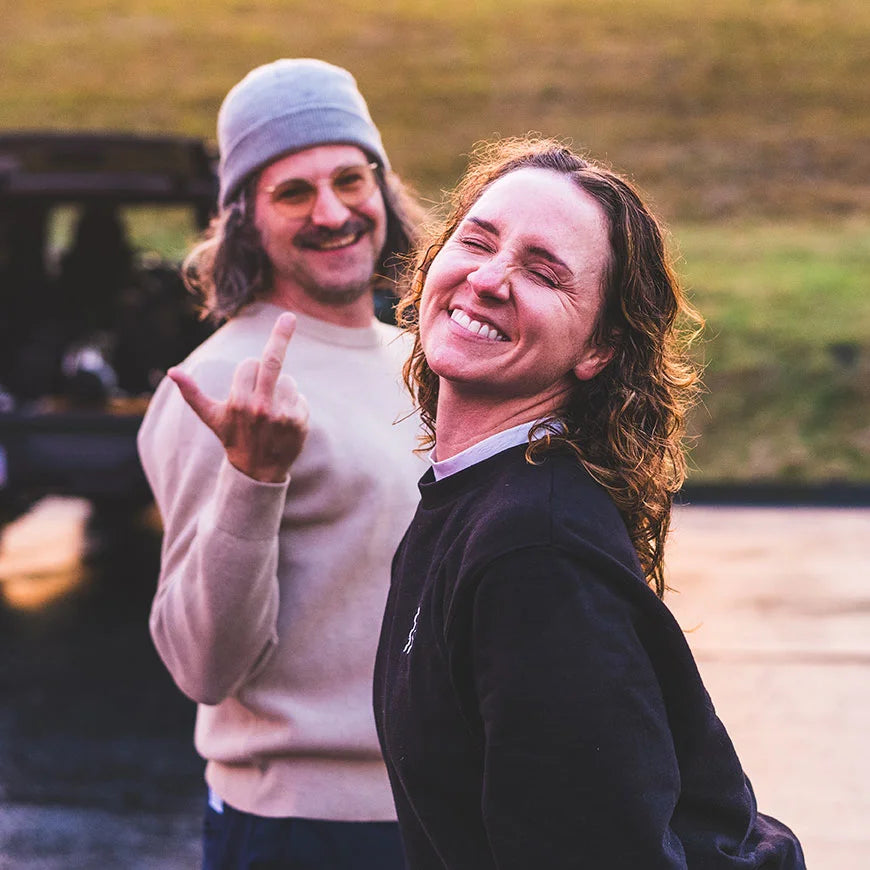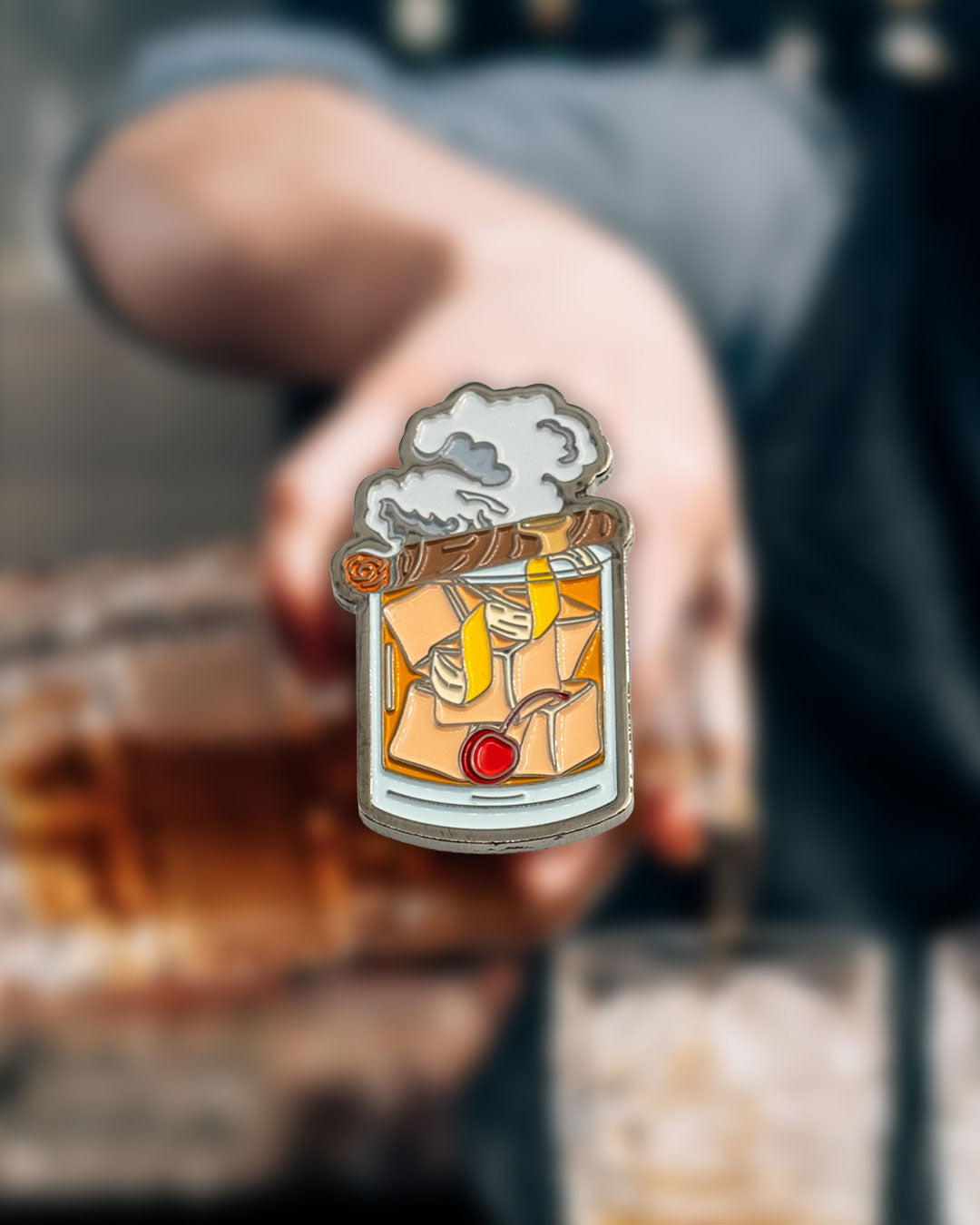 Matchstick Athlete Victoria Gailey at Heron Lakes in Portland, Oregon.
Matchstick Athlete Victoria Gailey at Heron Lakes in Portland, Oregon.
Victoria Gailey is native Oregonian, a stick, a great hang, and most importantly, she's Matchstick's newest sponsored athlete. She graduated from the University of Nevada in 2022 as one of the best women's golfers in school history, and in in her final season with the Wolf Pack Victoria won three consecutive tournaments and set the program's single-season stroke record, closing the year by being named to the All-Mountain West First Team.
We got to get out to Heron Lakes here in Portland with Victoria last week and, naturally, she's an absolute killer. Long off the tee, deadly with her wedges, and a putter with incredible feel. Save for a couple putts that ended up four inches left or right of the cup, she would have shot low-60s on a course she wasn't super familiar with. Instead, she had to walk away with a cool 69 (-3).
Victoria is currently readying herself for LPGA Q-School later in 2023. We're so excited she's on board with us, and stoked to support her on this journey. We'll have more content with Victoria in the coming weeks, but we got to sit down with her and talk about her golfing journey, growing up with a PGA pro as a dad, changes to golf rules, and what it's like to prepare for a professional career.
How did you start out golfing when you were younger?
I started when I was super young. My entire family golfs and it all started with my Nana, who just turned 97. She was a golfer when she was younger. She moved around a lot, and back then she played on men's teams because they didn't have any women's teams. She’s an absolute pioneer. My aunt played golf at Oregon State University, and although my mom didn’t play competitively she was still into it when she was a kid. My dad worked at Broadmoor in Portland as a PGA professional and was a coach at Grant High School. Broadmoor is closed now, but my parents actually met there, they got married there… basically without Broadmoor I wouldn't be here.
At three years old I could start to hold a club, and my parents really started me golfing then. But they didn’t push me to do that exclusively, I did a lot of other things, which was nice. That let me find my own love for the game as I got older. I was a varsity athlete in golf when I was a freshman in high school, and that was my own doing; I never felt pressured to do it. That’s really when I decided I wanted to play in college and eventually go pro.
I wonder what the unique experience was like to have a PGA professional as a dad. Was he your coach?
My dad started me out, he was my full-time coach for everything until middle school. But as you do at that age, you want a little distance from your parents as you forge your own path — you go through that age where you don't want to listen to your parents.
I was like, “Dad, I think I just want you to be my dad.”
Also, once you reach a certain level, I think often times it just comes to a point where you need to switch and get a different set of eyes on your swing. And it almost makes it feel more real when you have a dedicated coach that's outside of your family to me a bit. Obviously guys like Justin Thomas have been successful without that, but that was just what I felt was the right call.
So for a long time Christopher Smith was been my longtime coach out at Pumpkin Ridge. I work with one of his PGA friends now, John Tattersall who's based out of Atlanta, but Christopher was at Pumpkin for a long time and he was able to give me a really good foundation.
It’s sort of funny because some of the things I’m working on now with John are the same things I was working on with my dad at Tualatin Island Greens when I was 10 or 11. So he always knew what he was talking about, my dad and I will always share that bond. Now my dad and I have almost reached the point where I've kind of we’ve switched roles a little bit. These days I'm the most experienced golfer in the family, it’s funny.
You’re from Tigard, which is a suburb just south of us in Portland. What was it like when you went from Oregon to Nevada, where that conference’s courses are a lot different than the parkland courses we have here in the Willamette Valley?
Before college recruiting, I had never been to Nevada, never been to Vegas, never been to Reno. I didn't know this until I started looking at colleges, but my grandparents spent a lot of time in Reno, where UN is located, so they told me they really liked it there. That may have influenced me a little bit.
In terms of the golf, it’s high desert in Reno so elevation 4,500 feet, the ball goes really far, which is so fun, but then you come back to Portland in the winter and the ball goes nowhere. All sun in Reno was really nice nice, and the ball going far was great, definitely way more wide open courses, you know, you don't have those big giant trees that hang just above your head and stuff like that.
It wasn't too hard of an adjustment overall other than adjusting to walking courses with hills and stuff. But the elevation is tough, my first year I got way more winded and it was definitely was a little bit of an adjustment as far as my physical ability. But I concentrated on that early on, and after a couple of weeks when you're walking the hills you're good.
What’s weird about Reno is that the grass isn’t necessarily all that different from playing in Oregon. Things get different in Nevada when you head south, toward Las Vegas. We did play there a lot in college, so that was something you adjust to on a tournament-by-tournament basis, but the actual playing surface wasn’t that different. I think the biggest thing was the elevation change and also that the courses are a lot more wide open. In the Willamette Valley, you have these courses with these big tall trees to hit over, or around, or you’re stuck swinging under them. With more space in Reno, you end up having to gameplan much differently and that’s really important.
Tell people who might not know. What's this transitory period like as you leave college and prepare to go pro? How is it different and what do you have to do to prepare?
The biggest thing in getting better for me right now is how to structure things and be on a schedule. I enjoy being on a schedule, because that's how I get things done and I don't just waste time. In college you have a set schedule, and I’ve tried to stick to my own organization now that it’s not as mapped out for me.
I think the biggest thing that is different in terms of actual golf is that I no longer get free access to courses. Although I don't have school anymore, which took up a big chunk of my time, I have to work to gain access which takes time away from either rest or free time. But I use that work to put back into my golf game because I have to do it to get in the door. Meanwhile I have workouts; I swim laps; I'm practicing even on the days that I work eight hours; I'm practicing at least two hours either before or after or I go play nine. Then on the days where I don't have work, I'm practicing. I love doing it and there's nothing else I look forward to going to more than practice.
I mean, don’t get me wrong, I love playing more than practicing. But practice is an important thing also.
In that vein, what is a preparation or practice tip that you use that regular golfers might benefit from?
The thing I see the most when I'm out and about and I see people practicing is this: When you're practicing chipping and chip them all to the same hole… to be frank, that’s the worst way to practice, ever.
If you want it to translate to the golf course, you need to make it as much like it would be on the golf course as possible. So for example, if I was going to put down 20 range balls and hit to the same hole, I would be working on purely technique. Maybe I'm trying to get my hands in a certain position, and that's only goal. But if I'm working on something I want to do with my ball flight, or if I want the feel of that chip to actually translate to the golf course and actually become a better chipper, I'm using my own golf ball that I play with and I'm using one or two golf balls and I'm constantly moving around. You need the variability.
There is a and a place for the repetition and making everything the same so that your body can learn the technical stuff. But as quick as you can, once you're done improving your technical piece or whatever you're working on, move to the variability because that's what's actually going to translate to the golf course. That's what's going to help you translate it the best.
Switching gears a little bit, I want to ask you about some things related to pro golf and golf rules since you’re actually competing to go pro. So how do you feel about all this talk about rolling the ball back?
I personally don't want that because, especially with my driver, I'm working to hit it farther every day. The men's game is just a different thing, so I can’t speak to that, but I don't think it's a great idea. Golf is a game where everyone can play at the game time as the pros, and you shouldn’t take that away from regular players.
For example, Sam Harned, my boyfriend, has conditional Korn Ferry Tour status and dual membership with PGA Tour Canada. He's a highly skilled golfer, and he hits the ball in really long distance. Guys like him, if they can't get to a Par 5 in two, they're mad about it. They usually see that as a course set up issue. But for women, if we get to one or two Par 5s in a round it’s party time. And professional women golfers use the same premium balls as the men. So how is that going to affect us?
There’s a lot of talk about how we are going to end up with a bifurcated ball. And considering the women’s professional game, now we’re talking about a trifurcated ball. It seems extremely dumb, and related to the fact that golf courses only know how to change the geometry of a course by moving tee boxes back. Course design and negating men’s distance changes since Tiger isn’t just about tee box position, it’s about golf course design. But both of those seem like economic choices foist upon the players, pro and amateur, instead of spending money on additional course changes.
Exactly. I mean, even still, it's like... right now it's Rory and DJ that hit the ball really far and who else? Bryson can't keep it on the right fairway. It feels like like a weird solution to something, and kills the sales pitch that a regular player can go out and play the same ball that Tiger plays.
Two more golf rules questions that have been in my sphere lately: how do you feel about internal out of bounds, and how do you feel about the suggestion that regular golfers should be allowed to ground the club in a bunker?
Internal out of bounds is not something you encounter very often. Yesterday I was playing and the course had internal out of bounds on No. 16 to prevent people from hitting into the No. 6 fairway, playing up it, and effectively taking a shortcut. I would say internal out-of-bounds should, generally, not be a thing. But in situations like that, where it’s about player safety, it’s a good thing.
There's a certain way that a golf course is designed to be played, and even though you might be able to blast it anywhere, maybe you shouldn’t be able to or you should be penalized. People could be in danger or it could just make a mess of the golf course. There's a time and a place for an internal out of bounds.
And then grounding in the sand for like, you know, I think that should be considered a local rule for a lot of clubs. If you’re playing in a real tournament, then let’s keep it how it is. But you could make it a local rule for a men's club or some local event. People do it anyway. And it takes out some of the variability that exists in bunker conditions for municipal courses. Some are rock hard, some are fluffy, and that’s hard to gauge for the average golfer.
What’s something you think that doesn't get talked about enough in golf?
I’m a woman, so I see a different side of the golfing world than majority, so we'll start there. I think from my perspective, it’s the assumption that all women are bad at golf or something. I often feel like I don’t get a seat at the table until I go play golf with people and beat them. Then they respond like, “Whoa, you can hit it really far!” or “You're actually like, really good!”
Why are you so surprised? Now you’re going to respect me?
And that’s sort of everywhere. Even on the industry side, if I was to be a PGA professional, an instructor, or a club pro, it's such a male-dominated industry it's kind of the same thing. It's like I have to either play to a certain ability, or I have to prove myself that I'm capable of talking golf, playing golf, or solving golf problems. It shouldn’t be like that.
Having played with you and watching you shoot 69 in a casual round, on a course you’re not that familiar with, and where you could have easily shot in the low-60s with a few putts dropping, I can confirm that you’d beat the shit out of most of the people reading this blog post. But also that you shouldn’t have to be able to dust guys by 20 or 30 strokes to earn that respect.
Exactly.
Would you rather have a hole in one or your best round ever?
That’s tough, but I’m going to say best round ever. I’ve had five hole-in-ones, but I recently shot 64, and that was the culmination of a lot of hard work. For a hole-in-one, you can hit a terrible shot or a good shot and it might go in. It’s really cool, but as someone who works on their game a lot — I work on the mental side, I work on my physical ability, I work on technical strategy — all those things make my best round ever possible. It encompasses more of what I'm trying to do and I think it feels better in the long run.
It's a culmination of the work you've been doing, and then also, contextually, it could be the thing that helps you move forward, the whole thing you're working for, you know? Your best round ever could come in like a tournament setting, or in a D-1 round, and that’s a big thing for a golfer who wants to get better.




Sue McGee
August 30, 2023
Congratulations to Victoria and Matchstick, two great things get together. Golf products and a great golfer.
Coach McGee